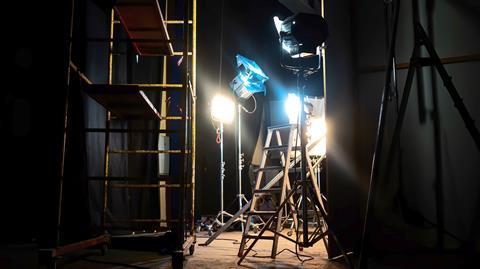A new collaboration between some of the industry’s biggest organisations has created Action for Freelancers, in a bid to deliver tangible outcomes
Some of the industry’s biggest organisations are coming together to reignite efforts to improve the working lives of freelancers.
Broadcast can reveal that a group named Action for Freelancers (AfF) is in the process of being formed, with plans to deliver a raft of specific, tangible outcomes (see box). AfF hopes to encourage the industry to consolidate its work on the issue and pool resources, removing duplication and ensuring freelancers who need help know where to access it.
The list of the organisations in early stage discussions is still expanding, but is understood to include Bectu, the BBC, ITV, Channel 4, Paramount, Sky and UKTV, as well as bodies such as Pact and ScreenSkills.
A source close to the project indicated that the vision is to include indies – particularly super-indies – and streamers.
The group will likely closely follow the model laid out by the pioneering TV Access Project (TAP), an alliance of the UK’s biggest broadcasters and streamers working to create permanent structural shifts around access provision for deaf, disabled and neurodivergent talent.
Like TAP, AfF plans to hire a project lead to convene conversations about the group’s work. This person will need to have credibility and experience, and will be paid accordingly, Broadcast understands. Recruitment will kick off in September and the lead will report to a panel of representatives from unions, broadcasters and production companies.
The challenge is pressing: Bectu last month published data showing that 52% of the screen workforce are currently out of work and 38% plan to leave the industry in the next five years. It’s a crisis that has been building for several years, during which various organisations have launched different schemes and surveys to address the challenges. Most notably, the Freelance Charter was launched at the Edinburgh TV Festival in 2021. How will it be more effective this time around?
“We’ve created Action for Freelancers because the need has never been greater”
The source suggests that AfF is designed to build on the work of pan-industry group Coalition for Change, which devised the charter, and that the appointment of a project lead is a key differentiator.
They say: “The need for AfF has never been greater. It requires determination and momentum to move forward, as well as structure and resource – something that was lacking in the charter as there was never anyone dedicated to working on it full time and driving it forward.”
The source is quick to say that the intentions of the Freelance Charter were “absolutely right and it was an important piece of work, and the key ideas remain relevant – but the issue was implementation”.
The key ideas set out in Action for Freelancers’ initial plans are heavily influenced by the Freelancer Charter – but the group will also rely on surveys and feedback from freelancers themselves.
Alongside revising the charter, the group will consider proposals around working conditions, recruitment, skills and training, mental health and wellbeing, and communication.
Committed to change
Ultimately, for Action for Freelancers to have its desired impact, it needs to have teeth to enforce its recommendations – something the group acknowledges. But, the source says: “It’s important to understand this isn’t legislation – we’re relying on the goodwill and determination of people. I don’t think policing is the solution – change needs to occur through the spirit of collaboration and co-operation.”
They point to the work broadcasters, groups and unions have done in recent years to diversify the industry’s workforce, arguing those organisations won’t want this work to go to waste.
While they are keen to reiterate that Action for Freelancers is still very much in its early stages, and that the group welcomes feedback as it continues to finetune its ambitions, the source is optimistic of the scale of change that can be achieved.
“TAP has shown us what is achievable,” they say. “Most of us in TV know what it is like to be a freelancer, and genuinely want to work together to protect the hard work we’ve done on rebalancing the make-up of the TV industry and ensure we help more freelancers.”
ACTION FOR FREELANCERS: FIVE KEY AIMS
More detail about Action for Freelancers’ plans is expected to be made available in a session at the Edinburgh TV Festival, Broadcast understands.
It is believed the plan will focus on five key areas: working conditions, recruitment, skills and training, mental health and wellbeing, and communication.
These five areas will form the basis of sections of a revised Freelance Charter, with experts convened to construct each section and build on the previous charter.

In the working conditions section, the group will consider issues such as working hours and overtime, and having contracts resolved prior to work starting. Broadcast understands rates will not be included and that the group will adhere to competition law.
The recruitment section will focus on ensuring roles are advertised, best practice in recruitment processes and flexible and remote working. Across skills and training, the group will also seek to build on the findings of the skills taskforce and amplify work already achieved by ScreenSkills and the skills clusters to help consolidate existing initiatives and professional development.
In terms of mental health and wellbeing, AfF is understood to be engaging with the Film & TV Charity’s work to discuss how to amplify existing work to support those losing work and leaving the industry.
Communication will be a key priority to ensure freelancers are aware of what is available to them when in need. One proposed solution is the creation of a freelancer hub, which would be the definitive place for online resources, support services and training. It is also possible that commissioning trends information will be published on the hub, allowing freelancers to make more informed decisions about retraining and moving across genres.
The revised charter is also expected to be underpinned by an annual survey of the freelance community, allowing freelancers to voice concerns and raise issues, and ensuring that AfF’s progress is monitored and its work redirected as needed. It is understood that the group is in discussions with other organisations that might help run the survey, in order to avoid duplicating existing work.
The group also plans to commission an independent report, which will consider wider structural considerations affecting freelancers and look at other countries’ approaches to tax benefits and employment status for creative freelancers. The aim of such a report might ultimately be to influence government policy and persuade it to offer support.
The group will model itself around the TV Access Project. Essential to this is the appointment of a project lead, who will drive the various workstreams proposed to maintain momentum, with recruitment scheduled to begin in September.
The group’s plans have not been fully finalised – instead, AfF is actively seeking feedback, from the freelance community in particular, to continue to shape the services, support and initiatives being offered.

































No comments yet